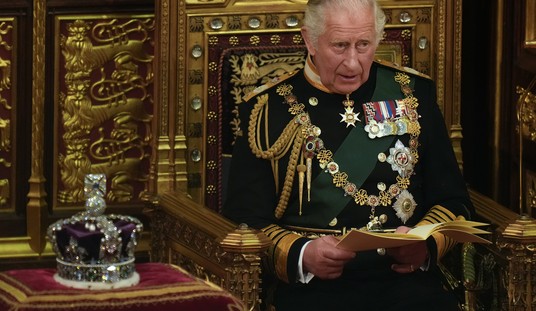In what is surely one of the stranger stories of the news cycle, we check back in with the case of 18 year old Kansas high school student Emma Sullivan. As you may recall, Emma was part of a youth group which traveled to listen to a speech by Gov. Sam Brownback. While the event was going on, Ms. Sullivan whipped out her phone and sent what turned out to be The Tweet Heard (Briefly) Around the World.
“Just made mean comments at gov. brownback and told him he sucked, in person #heblowsalot.”
What should have been a pointless, (if rude) momentary joke between school pals quickly blew out of all proportion. The governor’s office caught wind of the tweet and contacted the youth group and her school. Emma was called down to the principal’s office and told she would need to write a letter apologizing to the governor for her ill considered remark.
There was an apology coming, but it wasn’t from Emma.
When a high school senior tweeted that Kansas Gov. Sam Brownback “sucked,” among other invectives, reaction at the state Capitol led her principal to demand an apology. Instead, it was the Republican governor offering a mea culpa Monday, forced to admit to a self-described overreaction by his staff that subjected him to ridicule for efforts to police a teenager’s Internet musings…
“My staff overreacted to this tweet, and for that I apologize,” Brownback said in a statement Monday. “Freedom of speech is among our most treasured freedoms.”
The reaction exemplifies what Bradley Shear, a Washington, D.C.-area social media attorney, called an example of the nationwide chasm between government officials and rapidly evolving technology.
Shear’s analysis is even a bit on the tame side. This wasn’t the fault of the governor, obviously, but a massive failure by his staff. One of the first rules in politics is to never shoot down, and it’s difficult to picture a steeper angle of downward shooting than the perception of a sitting governor taking on a teenage girl for something she sent out on Twitter to her (at the time) barely five dozen followers.
But, as Shear also notes, this is likely a symptom of the growing pains which older, established political offices will experience as they struggle to come to grips with the new age of social media. On the one hand, it’s good that campaigns and elected officials are moving to monitor and make use of tools such as Twitter and Facebook to stay in touch with the voices of the voters and get their message out in a more direct fashion. But the people you assign to do these tasks really need to be familiar with – if not immersed in – the culture themselves.
If you were to note a damaging meme or bit of spin showing up, for example, in the timeline of one of the folks at National Review and it was quickly retweeted by Chuck Todd on his Daily Rundown account, you need to know enough to move fast and head it off at the pass before it shows up on NBC the next morning. But you also need to be able to distinguish between something like that and 140 characters from a bored teenager goofing around with her friends. What Brownback’s staff managed to do was turn Emma into an overnight web sensation while forcing the governor into the embarrassing position of having to apologize to her and reaffirm his belief in free speech. There’s a lesson here for the rest of the elected officials and candidates across the country.








Join the conversation as a VIP Member